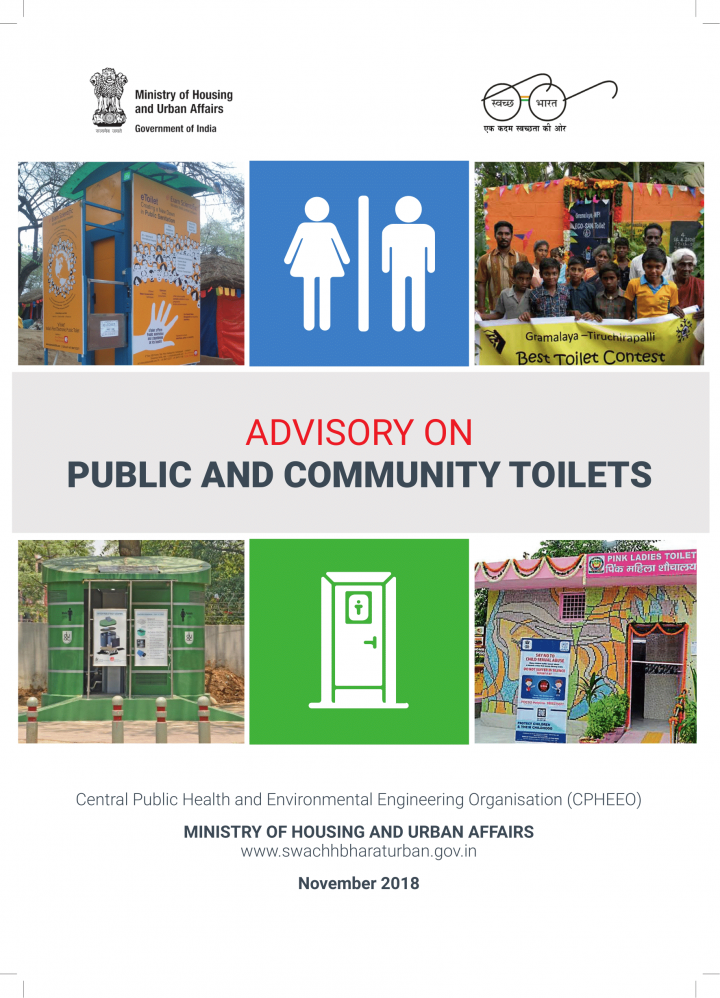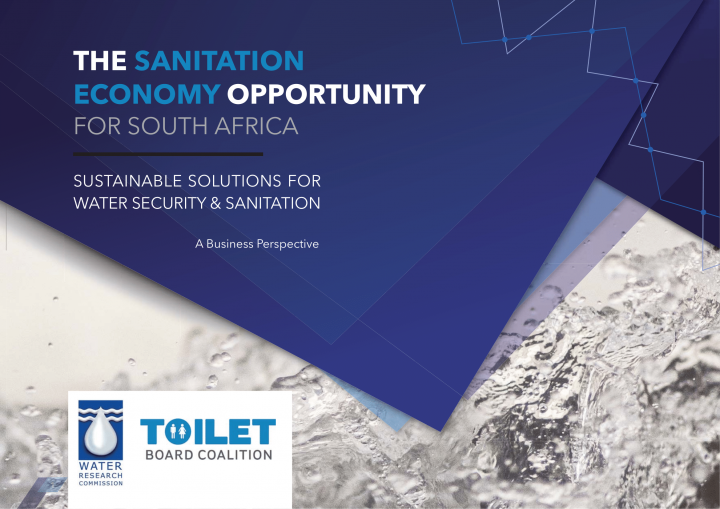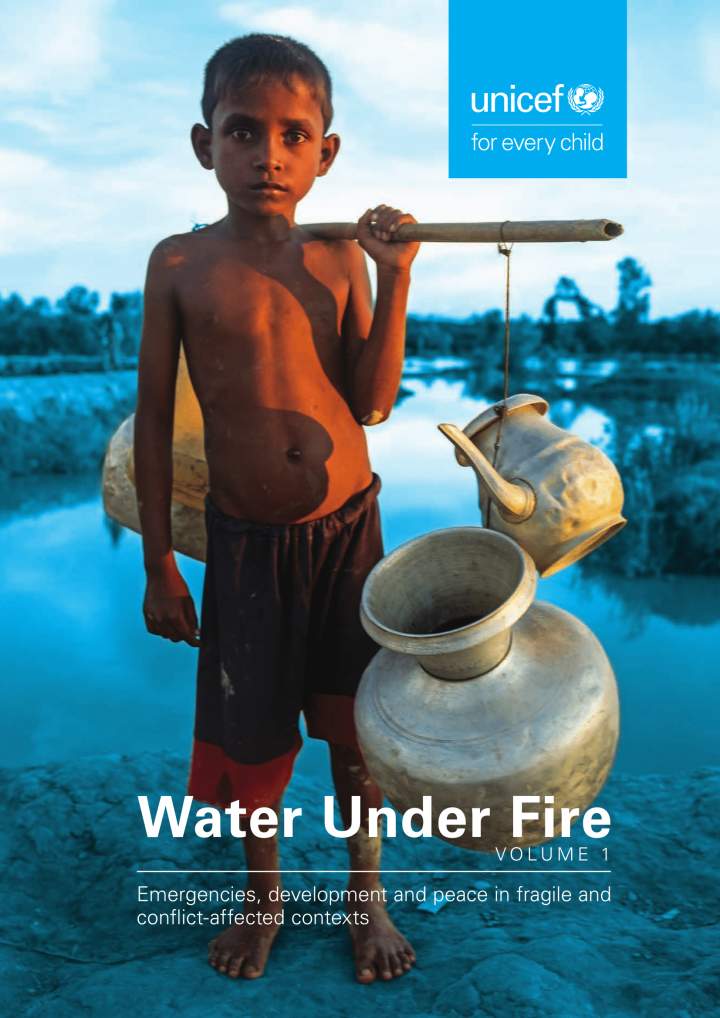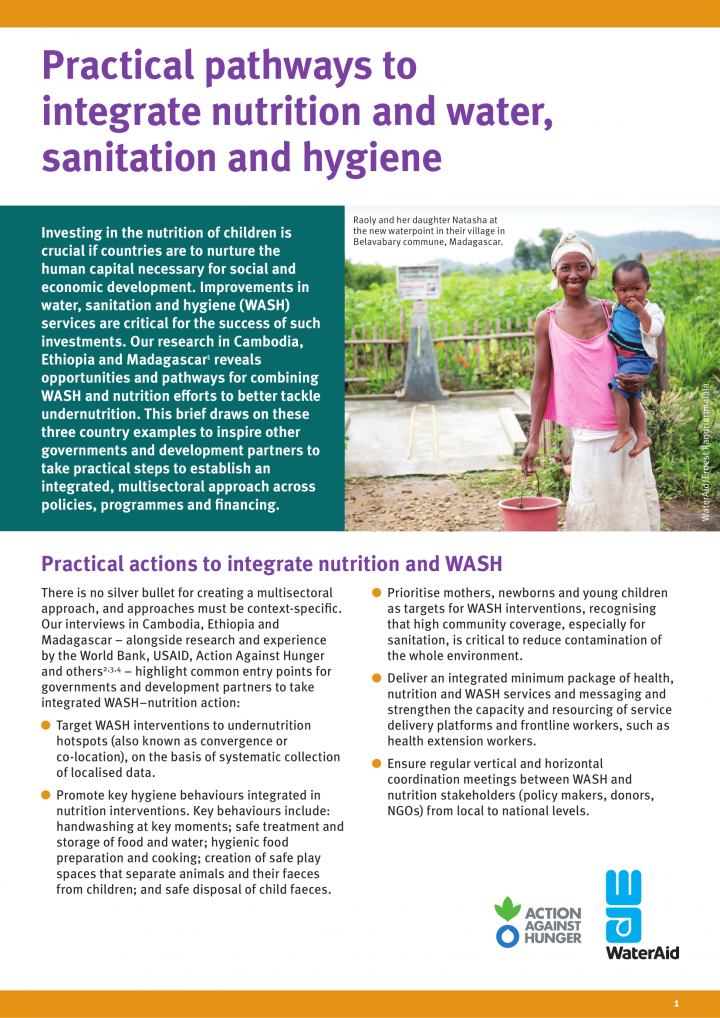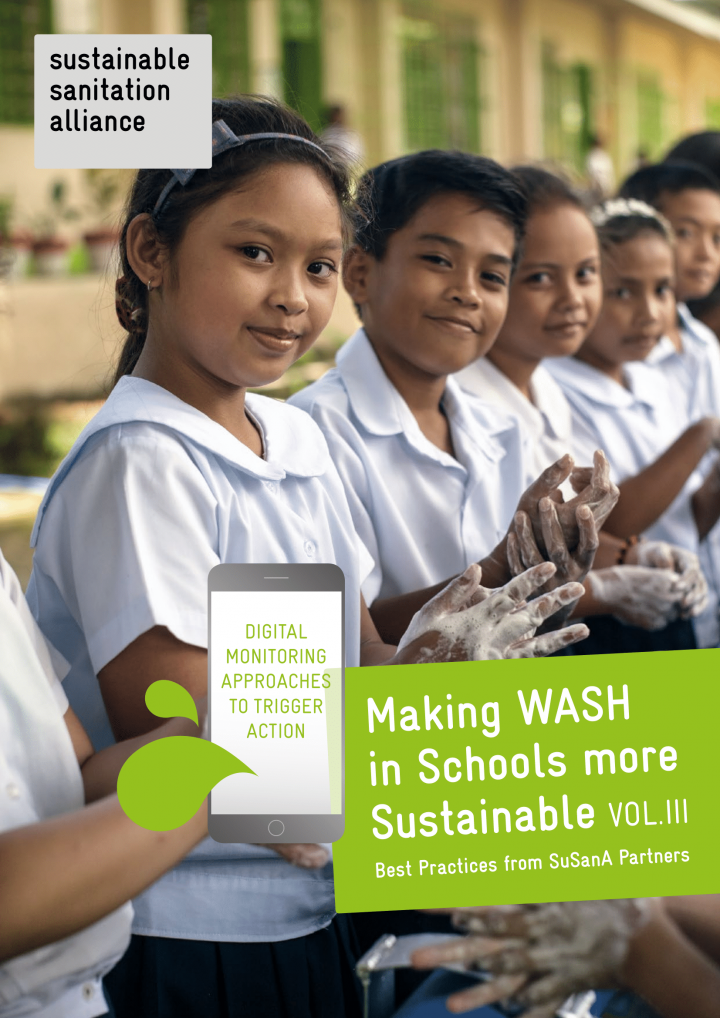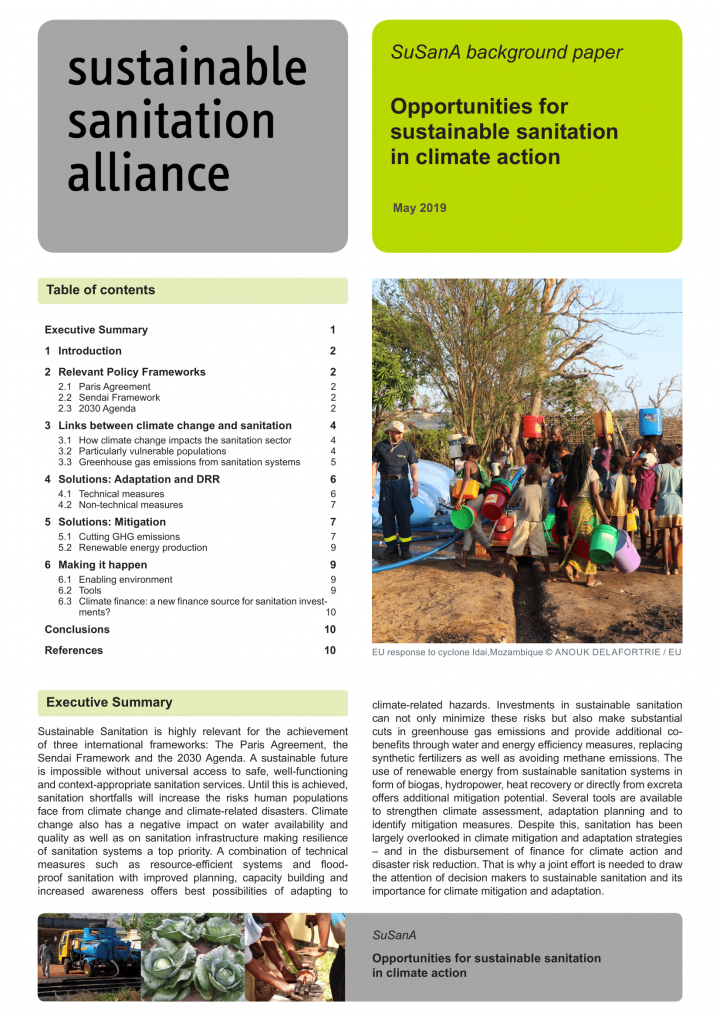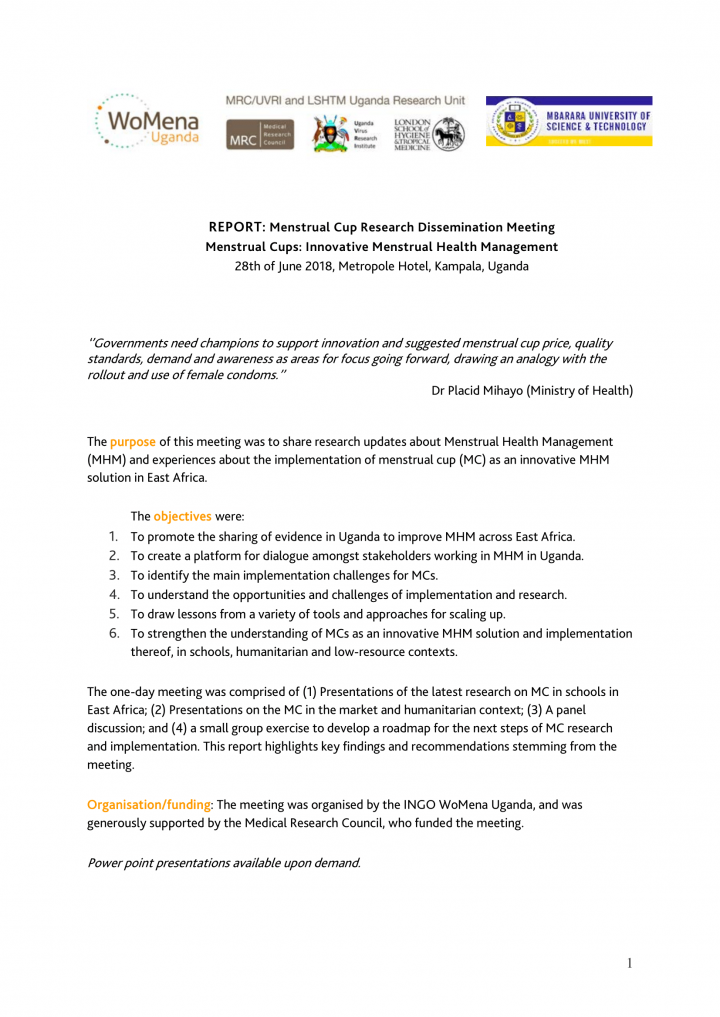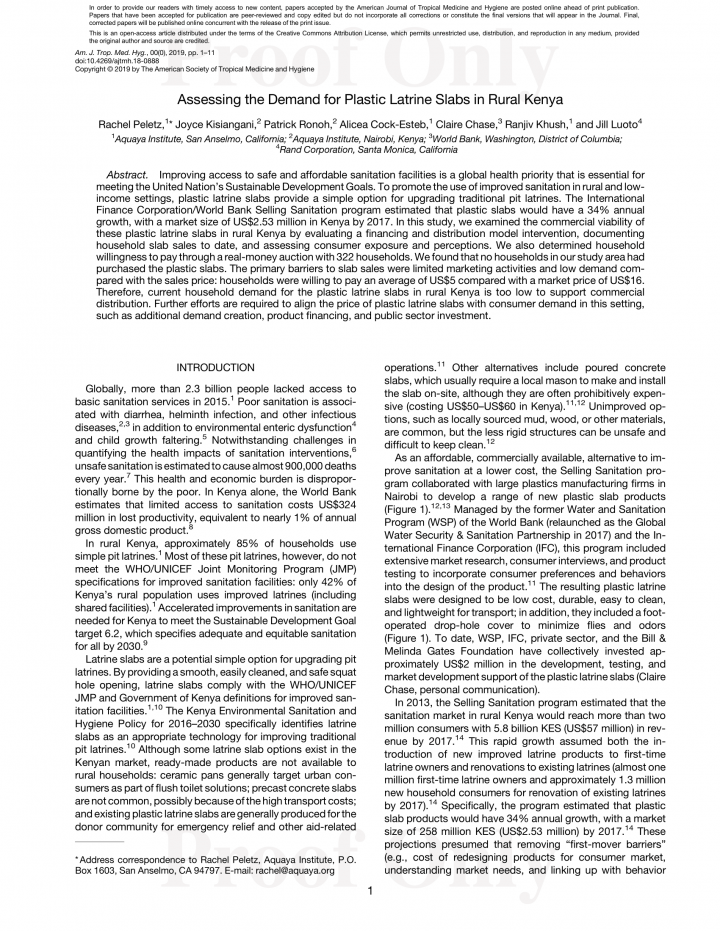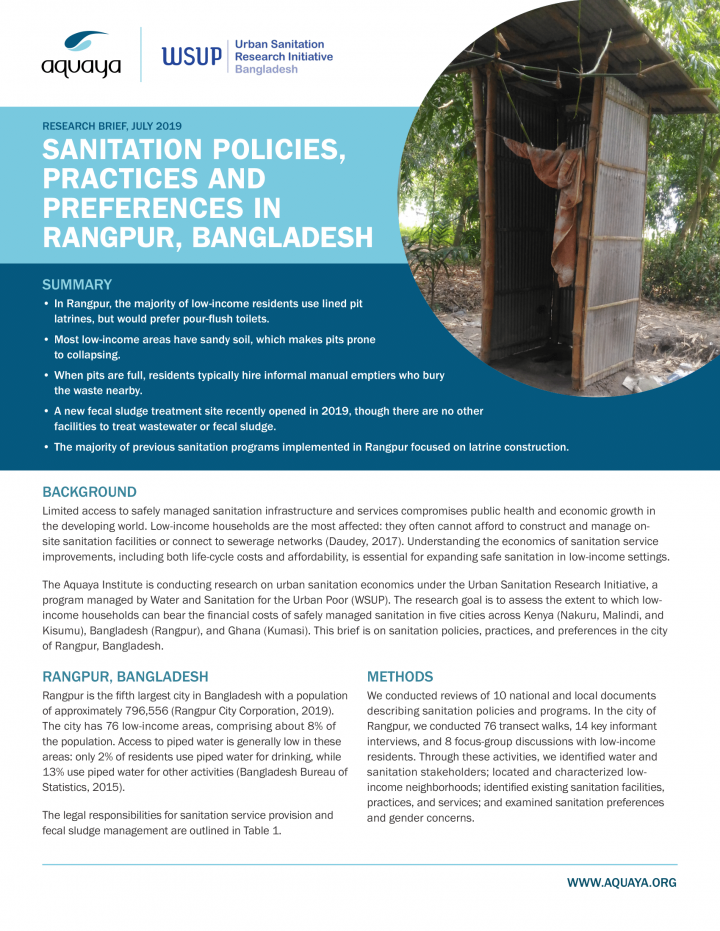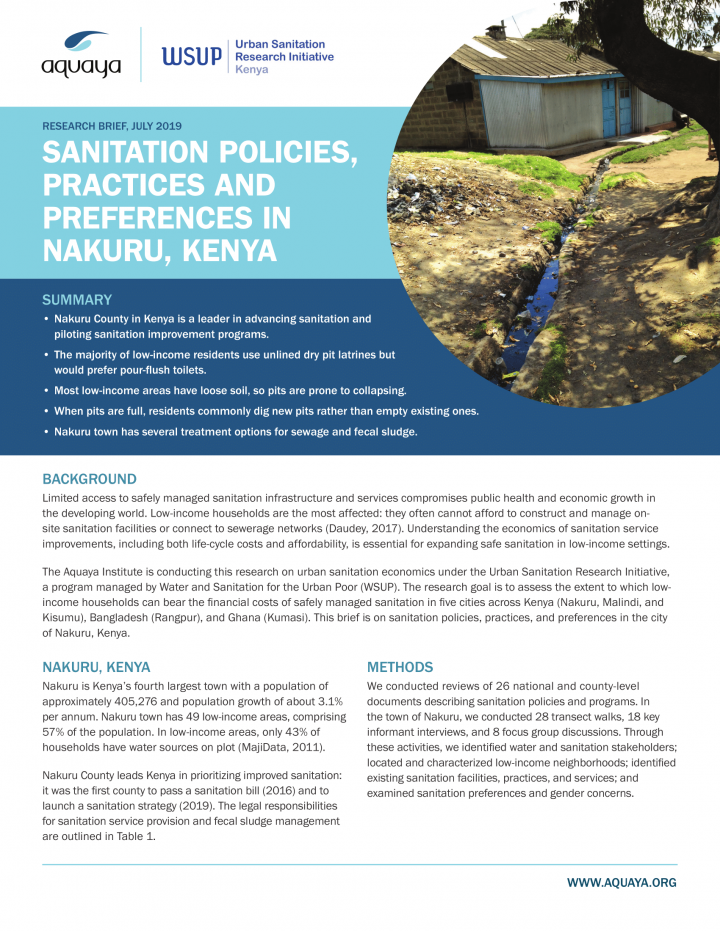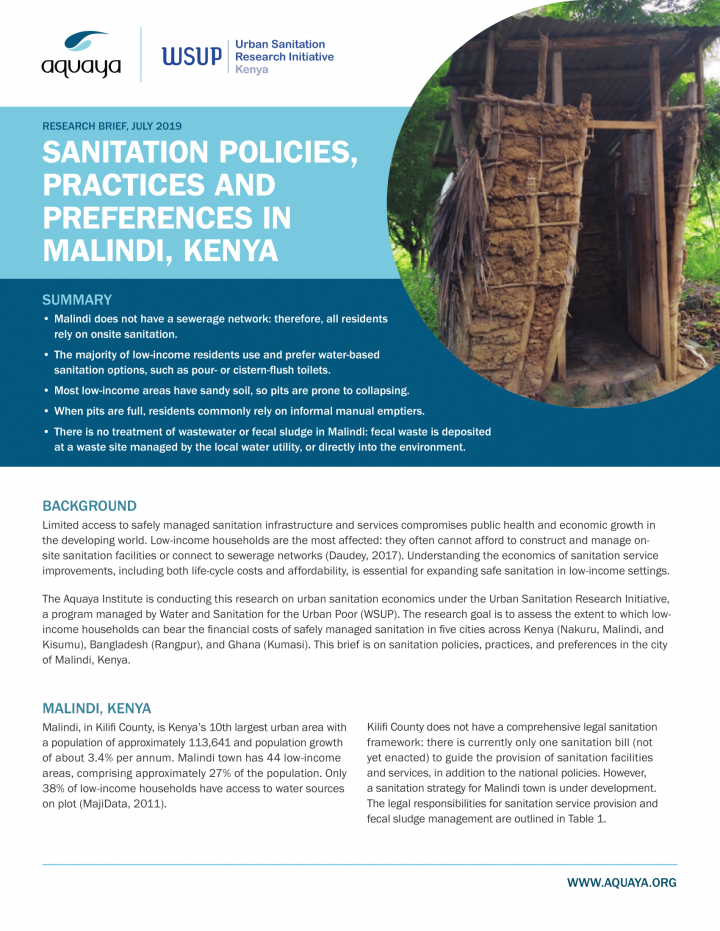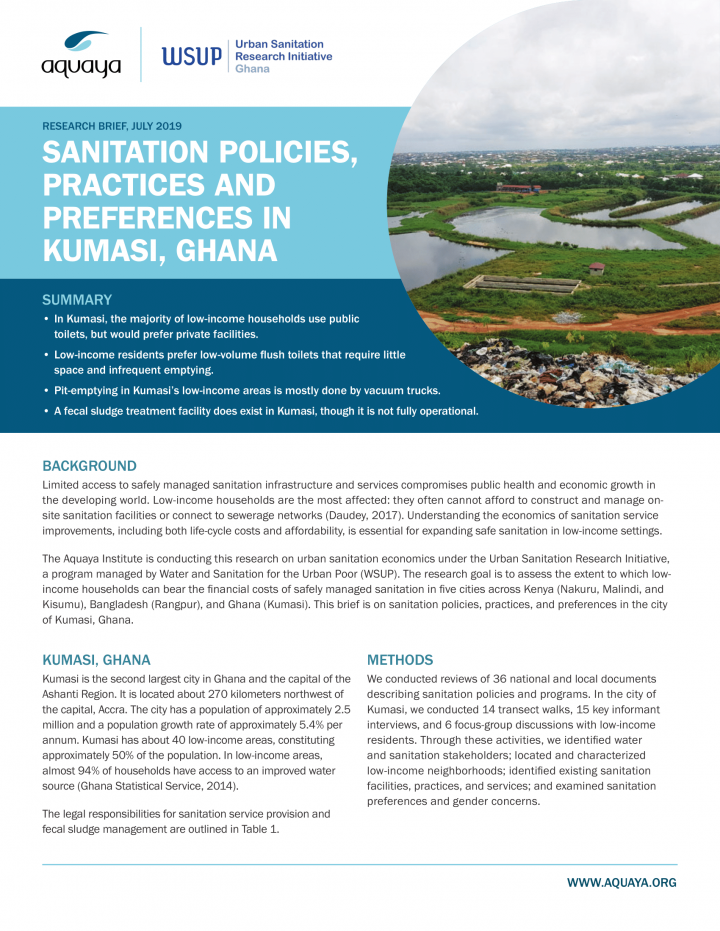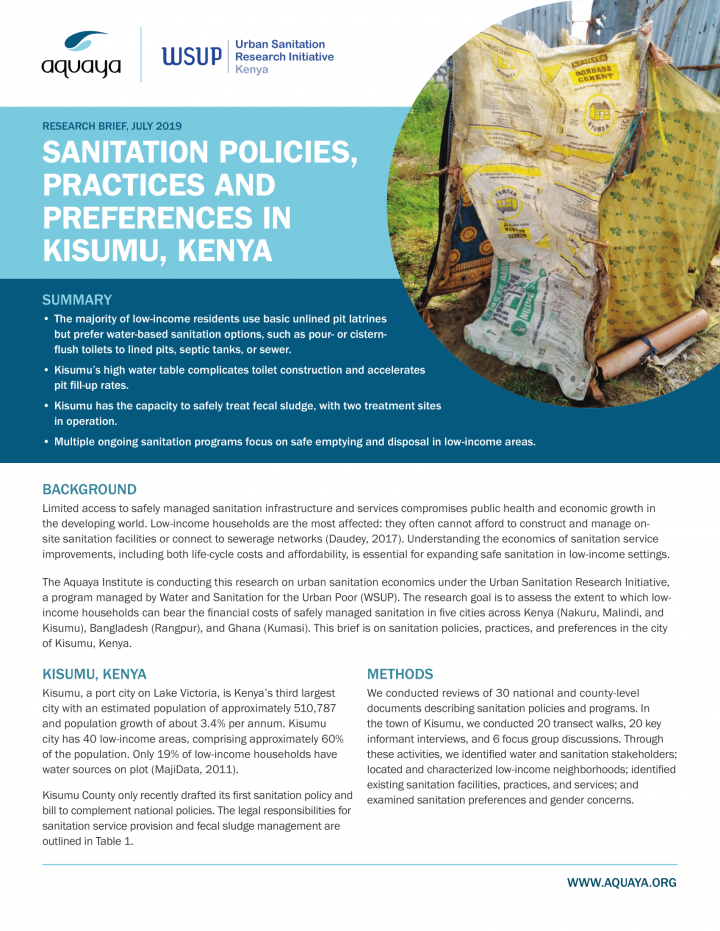Searching for information on Sanitation Workers?
The Sanitation Workers Knowledge + Learning Hub is the best source for all current news, trends, articles and updates on sanitation workers rights around the world.
Sanitation has become a critical issue in the cities today. Ever growing population in the cities
has made it difficult to provide quality service to all its citizens. Swachh Bharat Mission (SBM),
the national flagship programme is dedicated to the improvement of sanitation condition in the
country. Ministry is extending technical and financial assistance to ULBs for improving …
The Water Research Commission and the Toilet Board Coalition have come together to identify the business opportunities in the Sanitation Economy specific to Africa.
Our sanitation challenge in South Africa is a continuous
one. Dealing with the inequities of the past, coupled
with a dichotomy in society through apartheid spatial
planning and the new perils of nature in the form of
climate …
Access to water and sanitation in spheres of life beyond the household, particularly in public spaces, is an essential element of the human rights to water and sanitation. However, service provision and monitoring are often neglected in such places. As a result, potential violations of human rights occur frequently and disproportionately impact persons that live in vulnerable situations, such as …
Utilities can play an important role in reducing and eliminating barriers faced by women. This study presents a first-of-its-kind analysis that aims to heighten understanding of key barriers and bottlenecks that women face in their career in the water sector and identify interventions that water companies can put in place to increase gender diversity in the water workforce. The report draws on …
This framework for action was developed to support the inclusion of nutritional considerations in the design of water operations and to help formulate nutrition-enhancing water policy. Chronic undernutrition early in life can cause cognitive and physical impairments that prevent children from achieving their full potential and have lasting consequences on the human capital that is essential for …
Background:
Three large new trials of unprecedented scale and cost, which included novel factorial designs, have found no effect of basic water, sanitation and hygiene (WASH) interventions on childhood stunting, and only mixed effects on childhood diarrhea. Arriving at the inception of the United Nations’ Sustainable Development Goals, and the bold new target of safely managed water, …
Every child has the right to water and sanitation. And yet globally, in fragile and conflict-affected contexts, 420 million children lack basic sanitation and 210 million children lack access to safe drinking water. UNICEF launched the Water Under Fire campaign in March 2019 to draw global attention to three fundamental areas where changes are urgently needed to secure access to safe and …
In this report, we explore the question of how scarce public resources can be used most effectively to achieve
universal delivery of WSS services. To inform our discussion, we analyze subsidies in the sector, including
their magnitude, their efficacy in achieving their policy objectives, and the implications of poor design. We then provide guidance to policy makers on how subsidies can be …
The World Health Organization and United Nations Children’s Fund (WHO/UNICEF) Joint Monitoring Programme for Water Supply, Sanitation and Hygiene (JMP) produces internationally comparable estimates of progress on drinking water, sanitation and hygiene (WASH) and is responsible for global monitoring of the Sustainable Development Goal (SDG) targets related to WASH. The JMP has recently published …
The 23rd meeting of the UK’s Sanitation Community of Practice was held on the 14th of June 2019 at the University of Sheffield. The aim of the event was to discuss the importance and potentials of capacity building as an integral part of sanitation service delivery. Students from the University of Sheffield presented their group work assessing municipal capacity building approaches in Ghana, …
The Equality and Non-discrimination (EQND) and Community-led Total Sanitation (CLTS) Handbook provides practical guidance for ensuring that behaviour change interventions leave no one behind. Drawing on experience from across the sector, this handbook is specifically targeted towards those implementing or supervising CLTS interventions at the community level. Key features include a summary of …
Investing in the nutrition of children is crucial if countries are to nurture the human capital necessary for social and economic development. Improvements in water, sanitation and hygiene (WASH) services are critical for the success of such investments. Our research in Cambodia, Ethiopia and Madagascar reveals opportunities and pathways for combining WASH and nutrition efforts to better tackle …
The aims of this factsheet are to:
1. Advocate for sustainable WinS globally as anchored in the SDGs;
2. Highlight key solutions to existing challenges within WinS;
3. Explore various innovations and successful approaches using examples from low and middle income countries and outline best practice approaches and lessons learnt;
4. Identify the common principles that are needed to …
This publication is the follow up of the first and second volume of WASH in Schools best practices by SuSanA partners. This third volume focuses on the topic of monitoring and evaluation (M&E). The aim is to show how digital approaches for M&E can be used to trigger action for improvements in WASH in Schools.
It introduces the WHO/UNICEF JMP core and expanded questions and indicators for …
Sustainable Sanitation is highly relevant for the achievement of three international frameworks: The Paris Agreement, the Sendai Framework and the 2030 Agenda. A sustainable future is impossible without universal access to safe, well-functioning and context-appropriate sanitation services. Until this is achieved, sanitation shortfalls will increase the risks human populations face from climate …
The purpose of this meeting was to share research updates about Menstrual Health Management
(MHM) and experiences about the implementation of the menstrual cup (MC) as an innovative MHM
solution in East Africa.
The objectives were:
1. To promote the sharing of evidence in Uganda to improve MHM across East Africa.
2. To create a platform for dialogue amongst stakeholders working in MHM in …
Improving access to safe and affordable sanitation facilities is a global health priority that is essential for
meeting the United Nation’s Sustainable Development Goals. To promote the use of improved sanitation in rural and low-income settings, plastic latrine slabs provide a simple option for upgrading traditional pit latrines. The International Finance Corporation/World Bank Selling …
The Aquaya Institute is conducting research on urban sanitation economics under the Urban Sanitation Research Initiative. This brief is on sanitation policies, practices, and preferences in the city of Rangpur, Bangladesh.
SUMMARY
• In Rangpur, the majority of low-income residents use lined pit latrines, but would prefer pour-flush toilets.
• Most low-income areas have sandy soil, …
The Aquaya Institute is conducting this research on urban sanitation economics under the Urban Sanitation Research Initiative. This brief is on sanitation policies, practices, and preferences in the city of Nakuru, Kenya.
SUMMARY
• Nakuru County in Kenya is a leader in advancing sanitation and piloting sanitation improvement programs.
• The majority of low-income residents use unlined …
The Aquaya Institute is conducting this research on urban sanitation economics under the Urban Sanitation Research Initiative. This brief is on sanitation policies, practices, and preferences in the city of Malindi, Kenya.
SUMMARY
• Malindi does not have a sewerage network: therefore, all residents rely on onsite sanitation.
• The majority of low-income residents use and prefer …
The Aquaya Institute is conducting this research on urban sanitation economics under the Urban Sanitation Research Initiative. This brief is on sanitation policies, practices, and preferences in the city of Kumasi, Ghana.
SUMMARY
• In Kumasi, the majority of low-income households use public toilets, but would prefer private facilities.
• Low-income residents prefer low-volume flush …
The Aquaya Institute is conducting this research on urban sanitation economics under the Urban Sanitation Research Initiative. This brief is on sanitation policies, practices, and preferences in the city of Kisumu, Kenya.
SUMMARY
• The majority of low-income residents use basic unlined pit latrines but prefer water-based sanitation options, such as pour- or cistern-flush toilets to lined …
The 9th Emergency Environmental Health Forum took place from 18th -19th 2019 in Geneva, Switzerland. It brought together water, sanitation and hygiene (WASH) experts. The forum provided an opportunity to exchange recent field experiences and explore innovative approaches amongst over 110 attendees and discuss ways for future action and interventions for WASH in emergencies.
EEHF 2019 …
This FRESH webinar will Introduce a costing tool to calculate the budget need for schools to provide the basic service level for drinking water, usable sanitation, and handwashing with soap. The tool provides school heads with an easy to manage app, which calculates the annual cost per student depending on local condition and local prices.
How much do they need to keep aside for consumables, …
Coimbatore is the second largest city in terms of area in the state of Tamil Nadu. It is one of the fastest growing secondary cities in India and a major hub of textiles, industries, commerce, education, information technology, healthcare and manufacturing in Tamil Nadu. It is administered by the Coimbatore City Municipal Corporation (CCMC).
The 76% of the excreta properly managed originates …

